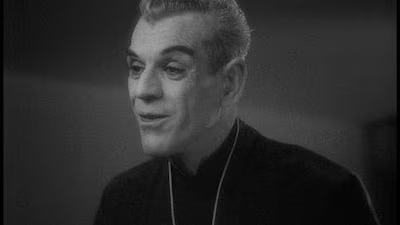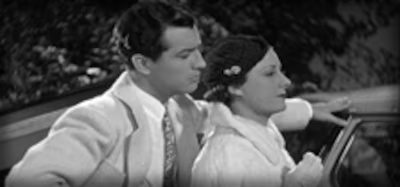Marv Albert
Biography
Biography
You know who Marv Albert is. And even if you do not think you do, turn on "NBA on TNT" with the sound muted. In fact, try and watch any of his famous highlights without his voice, and you will quickly remember exactly who he is. The "Voice of Basketball" has been calling NBA playoff games on TNT since 1999, but New York basketball fans remember him as The "Voice of the Knicks" for over 35 years, and casual sports fans have heard his sonorous tenor over six Super Bowls, various NCAA tournament games, and even the Wimbledon Tennis Championship. But while his famous voice was enough to land him in the Naismith Memorial Basketball Hall of Fame in 1997, it wasn't enough to clear him of a sexual assault charge that very same year, leaving an indelible black mark on an otherwise legendary career. But in the years since, Albert has returned to his seat calling basketball as the lead play-by-play announcer for "NBA on TNT," and reclaimed his career as one of the most popular and well-recognized sportscasters in history.
Albert was born in Brooklyn in 1941, and immediately took an interest in sports. Basketball was a completely different game in the 1950s. While today Madison Square Garden houses blue and orange pennants over crowds of sell-out Knicks fans, their playoff games in the 1950s were often relegated to a nearby armory to make space for the spring circus. But it wasn't enough to phase Albert. After becoming a ball-boy for the Knicks when he was just a teenager, Albert would bring practice play-by-play tapes to Knicks radio broadcaster Marty Glickman, dreaming that one day he would be able to sit in the chair and call the games himself.
His persistence paid off after graduating from New York University in 1967. The Knicks were entering a new era for their franchise, and Albert's luck increased right alongside his team. After moving to a new Madison Square Garden building in 1968, the Knicks began broadcasting home games on cable, which opened up an empty seat in front of the radio microphone, and Glickman knew just the right man for the job. Starting in 1967, Albert called radio games for the Knicks, who started a series of championship runs in the early 1970s and included exciting players such as a young Phil Jackson, who would later become one of the most famous coaches in NBA history. And right along with the Knicks, Albert's stock began rising. He was quickly hired to call football games, landing the New York Giants' football job from 1973 to 1976, and calling New York Rangers hockey games on the radio for the better part of three decades.
It didn't take long for Albert to become a little bit like Glickman himself. When NBC Television began broadcasting sports to a national audience, taking Albert across the world, fill-in broadcasters were often found to replace Albert, a job which often led to the blossoming of careers such as Albert's son, Kenny, who took over the Rangers' radio gig in 1995. By 1990 Albert's transition to television was nearly complete, as he was hired as the lead play-by-play announcer for the NBA playoffs on NBC. Although Albert has called everything from Wimbledon to the Olympics, his voice is most often associated with playoff basketball, where he brought his years of experience calling the Knicks to a national stage. In 1997 Albert was admitted into the Naismith Memorial Basketball Hall of Fame with the Curt Gowdy Media Award, given to acclaimed basketball broadcasters and journalists. Albert was on top of the world - and it was about to all come crashing down.
In 1997, 42-year-old Vanessa Perhach accused Albert of unwanted sexual assault in a hotel room, leading to a very public trial and the loss of his long time job with NBC. Sodomy charges were dropped after the trail, but Albert pleaded guilty to misdemeanor assault, and was given a year-long suspended sentence. Bob Costas filled in for the NBA playoffs on NBC in Albert's absence, but the following years saw a slow return to the national spotlight for Albert. After accepting the role of lead play-by-play announcer on TNT in 1999, Albert rejoined NBC in 2000 for two years of playoff basketball. But his commitment to TNT was slowly becoming his primary role. Now calling more regular-season NBA games on TNT, Albert found himself with various scheduling conflicts with the New York Knicks in a situation that closely mirrored his role as the announcer for the New York Rangers. Though rumors circulated that the Knicks were seeking a reduced salary for Albert's reduced schedule, they promptly fired Albert in 2004, citing overly critical remarks of the then floundering Knicks team. He was then hired for play-by-play by the New Jersey Nets in 2005.
In addition to various roles at CBS and Turner sports, Albert's primary role remains the lead play-by-play announcer for "NBA on TNT," which he shares with former NBA guard Reggie Miller. He has regularly appeared as himself in basketball video games such as NBA Live, and announces NCAA Men's Division I Basketball games for Turner Sports.
Filmography
Cast (Feature Film)
Misc. Crew (Feature Film)
Cast (Special)
Life Events
1967
Hired as New York Knicks radio broadcaster
1997
Recieved the Curt Gowdy Media award and admitted to the Naismith Memorial Basketball Hall of Fame
1997
Accused of sexual assault
1999
Hired by TNT as lead play-by-play announcer for the NBA
2002
Was seriously injured in a limousine accident and subsequently had to miss some of the 2002 NBA Playoffs
2005
Became the official play-by-play announcer for the New Jersey Nets
2011
Joined CBS Sports as an announcer for college basketball and NFL games
2016
Was NBC's play-by-play announcer for basketball games at the 2016 Rio Olympics
Videos
Movie Clip
























